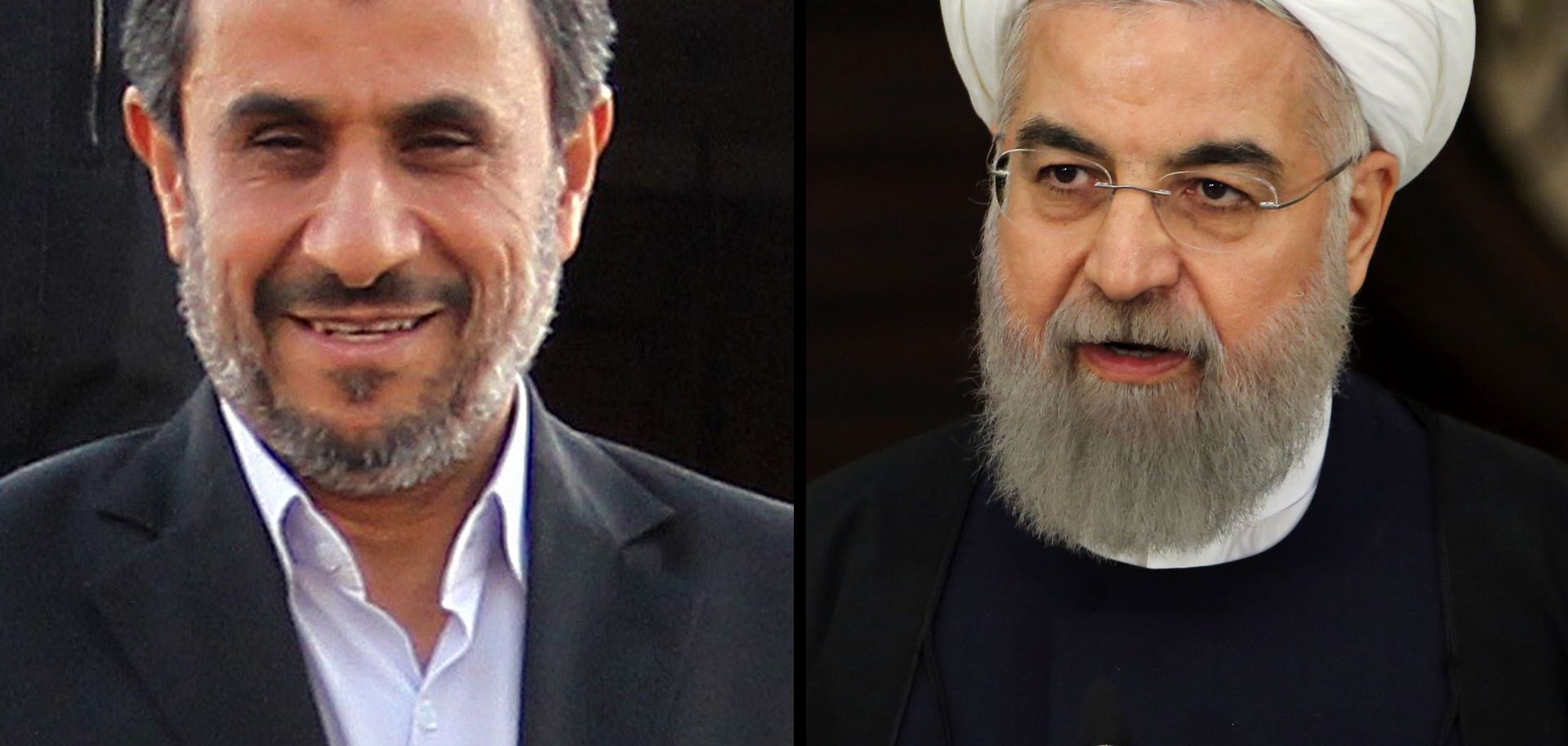ASSESSMENTS
Who Will Be Iran's Face to the World?
May 3, 2016 | 09:15 GMT

(ATTA KENARE/AFP/Getty Images)
Summary
A U.S. Supreme Court decision that could block Tehran from accessing $2 billion worth of frozen Iranian-owned U.S. securities has provided rich fodder for sparring between hard-line and pragmatic conservatives in Iran, most notably Iranian President Hassan Rouhani and his predecessor, Mahmoud Ahmadinejad. The central bank chief, Iran's vice president and the director general for political affairs in Iran's Foreign Ministry have all blamed "negligent" decisions made under Ahmadinejad's presidency for leaving the funds in European banks, which allowed them to be snatched up by the United States when more stringent sanctions were imposed. For his part, Ahmadinejad has blamed Rouhani's weaknesses in negotiations in arriving at the nuclear deal that led to easing of sanctions for allowing the United States to financially threaten the Islamic republic.
The hard-line claims that Rouhani's mismanagement of the issue amounts to robbery add heft to Ahmadinejad's recent hints that he is preparing to run for president in 2017. After all, the populist Ahmadinejad still commands support from the poor, rural and conservative population that he drew in past elections. Since Iran has yet to recover from its economic stupor incurred under international sanctions, each political decision involving the economy will fall under greater public scrutiny leading up to elections.
Subscribe Now
SubscribeAlready have an account?
